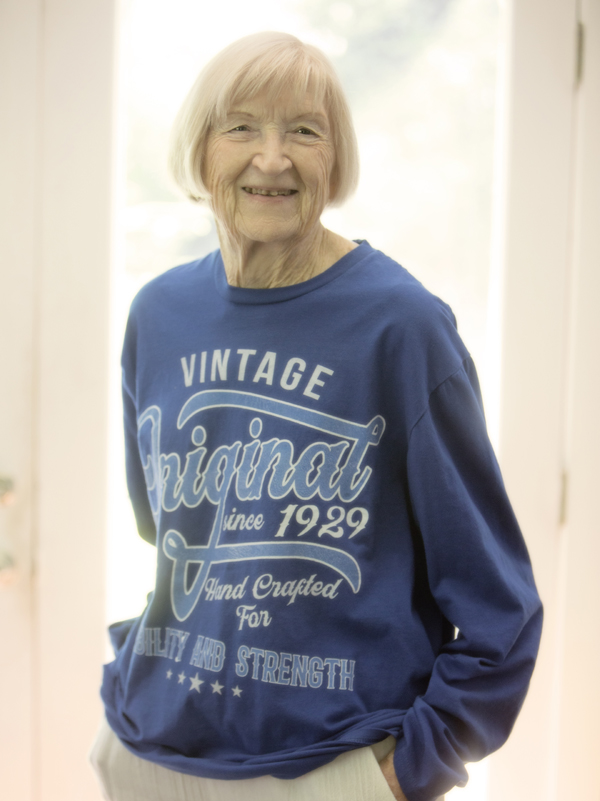Best-selling author Frances Fuller offers an insider’s view of assisted living and a unique outlook on aging, based on her own experience. Her insights are penetrating and deal with issues that many seniors and their families are concerned about.
WILMINGTON, NC, August 17, 2023 /24-7PressRelease/ — Making the transition to assisted living can be a deeply emotional and challenging process. This is because entering an assisted living facility can and often does trigger apprehension and fear of losing one’s freedom due to the significant shift in daily autonomy and decision-making. The prospect of relinquishing control over familiar routines, personal space, and choices can evoke a sense of vulnerability.
The move to assisted living can also symbolize a perceived loss of independence, as tasks once accomplished without aid might now require assistance. The structured environment, though well-intentioned, can inadvertently lead to feelings of dependence and constraint. It is not surprising that the fear of being separated from a familiar home environment and social circles can amplify concerns about losing the ability to engage in spontaneous activities and maintain a sense of agency. These fears often stem from a genuine desire to preserve control over one’s daily activities. But is all of this really the case? Frances Fuller, bestselling author of ‘Helping Yourself Grow Old’ addressed this issue in a recent blog post titled, “Will I Lose My Personal Freedom?” In that post she wrote in part:
“Mildred knew the time was near when she should not live alone. She had lately locked herself out of the house more than once. That was a predicament! She frequently misplaced the credit card bill and had to pay a late fee. Not wanting to cook, she often ate a bowl of cereal and called it dinner. Everything had become more stressful: phoning the insurance company, finding a parking place, collecting the paperwork for the tax preparer. She also admitted to herself that she was a little bit afraid of slipping on the bathroom tiles; she had asked herself, What if?
“But Mildred dreaded the idea of living in a retirement home. She imagined it would be regimented, like the army. Everybody up at a certain time and to the dining hall, dressed for the public! And what if breakfast was pancakes when she was hungry for bacon and eggs? She just wanted to make her own decisions: when to go to bed and when to get up, what to eat, which channel to go to for the evening news, as well as what to do with her money.
“What Mildred didn’t know was the role of government in protecting the rights of the elderly in long-term care communities. If she would visit a few optional communities and chat with the residents about life there, she should discover that they have not lost control over their own lives. She might discover that she has rights she had not even thought of, and in a home for seniors her rights are protected by law.
“Every state in our country has an office on aging with local offices serving the elderly population in their cities. This program was established under the Older Americans Act of 1965, which was part of Lyndon Johnson’s Great Society program. The states have local offices in the cities, and the network provides funding for such things as nutrition and health issues, along with elder rights programs.
“These offices also have teams of ombudsmen, responsible for protecting the elderly from every form of abuse. A full-time ombudsman directs the team, and one of the things members of the team do is to visit senior care residences and inform the residents of their rights. Not only do they provide in writing some of their principles, but they listen to the residents’ stories about life in the community. They stand ready to defend the rights of every resident to be treated with courtesy and respected as a person of worth and dignity, as well as to be served according to the terms of their signed contract.
“Because of this program, the elderly in long-term care communities may be more protected than those who are living with family. The sad truth is that in many families adult offspring of the elderly suspect a sibling of spending their parent’s money for their own benefit instead of providing food and medicine the parent needs. The sadder truth is that these suspicions are often true.
“In an elder-care home every resident has a contract, the right to know and understand its terms and the right to expect its promises to be fulfilled. And one of the duties of an ombudsman is to educate residents and their families about these rights. They can and often do go door to door in care homes and visit the residents to inform them of available services and listen to their complaints. Becoming aware of issues that need attention, they can then advocate for the elderly.”
The full text of the piece is available at https://www.inborrowedhouseslebanon.com/will-i-lose-my-personal-freedom/.
Frances Fuller’s book is unique among the many books on aging, because it is personal, while most such books are written from an academic point of view. Most are penned by sociologists, doctors, gerontologists, even the CEO of AARP, and one by a Catholic nun, Joan Chittister. Chittister’s book, ‘The Gift of Years’ is beautifully written, focusing on spiritual values and finding meaning in life. Chittister admits in the preface that she was only 70, which is the front edge of aging, and her book is somewhat abstract.
Atul Gawande’s book, ‘On Being Mortal’, relates medicine and old age, It enjoys high Amazon rankings, in the category of “the sociology of aging.” It contains a great deal of valuable scientific information and shows understanding of the physical and emotional needs of the elderly.
Frances Fuller’s book, ‘Helping Yourself Grow Old, Things I Said To Myself When I Was Almost Ninety’, is an up-close and very personal encounter with aging. It is an uncontrived and firsthand look at her own daily experiences: wrestling with physical limitations, grief, loneliness, fears, and the decisions she has made about how to cope with these and keep becoming a better person. She faces regrets and the need to forgive herself and others and is determined to live in a way that blesses her children and grandchildren.
Frances deals with many common, universal but sometimes private issues in an open, conversational tone. Her confessions and decisions invite self-searching and discussion. She tries to make sense of her own past and to understand her responsibility to younger generations. In the process she shares her daily life, enriched with memories from her fascinating experiences. Her stories and her voice — fresh, honest, irresistible — keep the reader eager for more. The end result is a book that helps create a detailed map through the challenging terrain of old age.
The result of this intimate narrative is that readers laugh, cry and identify with her mistakes and problems. Reviewers have called the book, “unique,” “honest,” “witty,” “poignant,” “challenging” and “life-changing.”
For these reasons it is a book unlike any other book on aging you will ever read. The book can serve as a primer on what lies in store for all of us, from someone who is working through many of these issues. While the book is a perfect fit for book clubs, there are many other individuals and groups who could benefit from the information and ideas in the book:
Those approaching retirement
People who are currently retired
Children of aging parents
Those who have lost a spouse
Retirement community discussion groups
Counselors
Educators
Life coaches
Church groups (men and women)
and a host of others. For group discussions, Fuller has made a set of discussion questions available at her website at http://www.FrancesFullerAuthor.com.
Readers have lavished praise on the new book. One Amazon review stated, “I find myself thinking,’I need to read this again and take notes!’ It’s full of wisdom, humor, and grace. I also have committed to rereading it annually – it’s that important!” Another said, “There is valuable life experience in this book. Helping Yourself Grow Old is truly is a book for all ages, and one not to be missed.” Another stated, “Beautifully written book telling timeless truths, for both the old and the young. Highly recommend this book for anyone who loves to laugh, cry, and learn wisdom from someone who has lived so much life.”
Frances’ prior work, ‘In Borrowed Houses’, has taken three industry awards and has achieved Bestseller status. Frances Fuller was the Grand Prize winner in the 2015 ’50 Great Writers You Should Be Reading’ Book Awards. It received the bronze medal for memoir in the Illumination Book Awards in 2014. Northern California Publishers and Authors annually gives awards for literature produced by residents of the area. In 2015 ‘In Borrowed Houses’ received two prizes: Best Non-fiction and Best Cover.
Critics have also praised ‘In Borrowed Houses.’ A judge in the 22nd Annual Writer’s Digest Self-Published Book Awards called ‘In Borrowed Houses’ ” . . a well written book full of compassion . . . a captivating story . . . “. Another reviewer described the book as “Wise, honest, sensitive, funny, heart-wrenching . . .”. Colin Chapman, lecturer in Islamic Studies at the Near East School of Theology in Beirut said, ” . . . western Christians and Middle Eastern Christians need to read this story…full of remarkable perceptiveness and genuine hope.”
Frances has shared stories about her life in an interview with Women Over 70, and a recording is available on their Facebook page.
Frances Fuller is available for media interviews and can be reached using the information below or by email at [email protected]. The full text of her latest article is available at her website. Fuller’s book is available at Amazon and other book retailers. A free ebook sample from ‘In Borrowed Houses’ is available at http://www.payhip.com/francesfuller. Frances Fuller also blogs on other issues relating to the Middle East on her website at http://www.inborrowedhouseslebanon.com.
About Frances Fuller:
Frances Fuller spent thirty years in the violent Middle East and for twenty-four of those years was the director of a Christian publishing program with offices in Lebanon. While leading the development of spiritual books in the Arabic language, she survived long years of civil war and invasions.
—
For the original version of this press release, please visit 24-7PressRelease.com here



